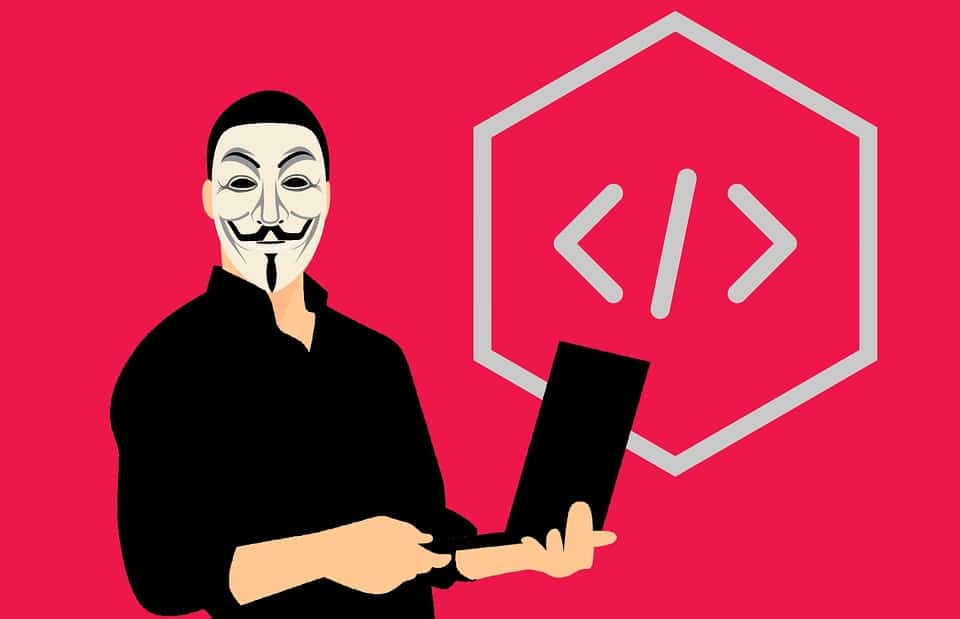 There are many ways that implementing and enforcing cyber resilience throughout your business will give you a competitive advantage in your market, chief among them the ability to ensure your company’s continued survival. A complete lack of cybersecurity or relying on an outdated security posture will inevitably lead to unsustainable losses in one form or another, often resulting in a combination of consequences. There are many very expensive ways that a cyber attack could impact your business’s well-being and eventually force you into bankruptcy.
There are many ways that implementing and enforcing cyber resilience throughout your business will give you a competitive advantage in your market, chief among them the ability to ensure your company’s continued survival. A complete lack of cybersecurity or relying on an outdated security posture will inevitably lead to unsustainable losses in one form or another, often resulting in a combination of consequences. There are many very expensive ways that a cyber attack could impact your business’s well-being and eventually force you into bankruptcy.
Beyond protecting your bottom line revenue, there is still much benefit to maintaining a brand synonymous with being cybersecure in an era of rampant data breaches, digital theft and ransomware lockdowns. Communicating with your customers your commitment to preserving the integrity of their personal information will go a long way to building trust and strengthening those relationships, especially when your competitors are unable to guarantee the same.
Here are nine of the ways that investing in your business’s cyber resilience will keep you competitive in your market:
1. Having No Cybersecurity WILL Put You Out of Business
The world has gone well past the point where anyone could believe they will be safe from the tens of thousands of new cyber threats that appear every day, including in the SMB space. Too many smaller and medium-sized businesses have found out the hard way that not only are they a target, and a preferable one at that, but that they are more likely than larger enterprises to have to shut down after a cyber attack. Between noncompliance fees and lost value from data stolen (including IP to competitors) or damaged, network shutdowns and disgruntled customers, a successful breach will mount so many costs that a firm like yours will simply be unable to absorb.
2. Reducing Downtime Preserves Revenue
One of the biggest dangers from a malware infection – especially with ransomware – is from downtime that will block system access to internal and external stakeholders. Employees will be unable to access the tools and data they need to fulfill their roles, and customers will be unable to interact with any forward-facing digital assets, such as your websites. Without an effective business continuity plan in place, you risk losing all productivity during the time your network is down as well as taking a hit to your brand reputation (especially if hackers manage to take control of your web properties).
3. Avoid Data Privacy Compliance Fines
If you need a reminder that data privacy compliance is intensifying across the country and the world over, then you should consider performing a risk assessment of your systems in case of an audit as soon as possible. Regulations are playing catch up with how commodified personal information has become, putting your business in the firing line for the next example to be made demonstrating the seriousness of these laws. There is a double irony in that any customers you lose to mishandling a breach will make the fines that much more impactful, and your cyber resilient competitors will receive a boost to their brand at your expense.
4. Legacy Systems Create Network Vulnerability
This is an age of technological growth, yet many smaller firms have chosen to squeeze every ounce of productivity from software bought years or even decades prior. Investing in new applications (and the IT infrastructure to run them) can be a tough decision to make, especially when you know something like QuickBooks is too small for your needs, but you cannot afford to migrate to a better product every year. Unfortunately, these legacy systems represent a huge network vulnerability that can be exploited with the right external factors as well as provide diminishing returns in productivity, and both factors can impact your relationships with your customers.
5. Employees Without Cybersecurity Training Can Expose You
Your network users are your first and last line of cyber defense, yet too often employees lack comprehensive cybersecurity training that would enable them to protect your systems. This includes leadership as well, as C-suite executives are the biggest targets of corporate-level cyber attacks, but too frequently are just as uninformed as anyone else in the company. Investing in proactive education on cyber threats and best practices for your user base will ensure that your business will lose to random breaches and be able to maintain data integrity.
6. Digital Transformation Needs Cyber Resilience
If you have made plans to migrate away from legacy systems to more modern applications, then you still need to implement new cyber resilience policies to handle the security impact of new technologies, such as the cloud. Digital transformation brings many potential benefits as well as drawbacks if not handled correctly, including the introduction of new endpoints that could expand your attack surface if employees lack cybersecurity training. To maximize the value your migration to modern technology will bring, you must educate users on and enforce cyber hygiene so as to safeguard the growth facilitated by these new tools.
7. Continue Working from Home with Cloud Security
The COVID-19 pandemic forced a new normal on businesses around the globe, but research suggests that the next normal will look like a (more comfortable) hybrid of the telecommuting environments social distancing created. However, to ensure your employees can continue working from home safely, you must take steps to maintain your cloud security controls to be able to allow the remote connections that make it possible. A hosted infrastructure that is protected against the cyber threats that target this deployment model will be able to deliver the best ROI and enhance your competitive advantage.
8. You Need Data Security for Internal Cyber Threats
While external cybersecurity is important, it is also critical to secure internal access to defend against either potentially malicious insiders or prevent human error from causing damage to your sensitive files. Hackers can be so bold as to walk into your workplace in a traditional office setting, and even while working remotely there are always backdoors that can be exploited by an intruder trying to pass themselves off as someone known to your system. Your information controls should be able to segment user permissions based on role as well as provide redundancy in case an attacker gets past one layer, or your business could face the consequences of your data being compromised.
9. Educating Customers on Cyber Resilience Builds Trust
The list of internal value points for investing in cybersecurity goes on longer than the one presented here, but another area where cyber resilience will provide external benefits is with your customer relationships. The uncertainty around cyber threats affects them just as much as you, if not more, and providing guidance and education will go a long way towards strengthening their trust in your brand. Everyone is looking for the right information in these unpredictable times, and sharing what knowledge you have earned within your ecosystem will ensure that you are both all protected, and equally committed to preventing the data your share from being exposed.
Discover How to Protect Your Brand with Cyber Resilience
Cyber resilience requires practice, repetition and a lot of patience, but ultimately maximizes your ROI on your software and IT infrastructure by ensuring the value of both your network assets and brand is secured. Hackers will be a reality as long as the Internet is around, but you can avoid becoming another victim of cybercrime by implementing time-proven tactics and the right cybersecurity support and service.
Download SWK’s free ebook here to learn more about the steps to fighting back against cyber threats and how to leverage these techniques to remain competitive.

